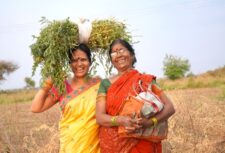Disclaimer: This article is more than 7 years old, and may not include the most up-to-date information or statistics. Please verify information with more recent sources as needed, and if you have any questions contact our Press Office.
Zubier Yazdani of Deighton Pierce Glynn solicitors on the landmark Chowdury & Others vs Greece case in the European Court of Human Rights, in which represented Anti-Slavery International in its intervention.

On 30 March 2017 the European Court of Human Rights handed down its landmark decision in Chowdhury & Others v Greece, Appl. No. 21884/15.
The court held that Greece violated Article 4 of the European Convention of Human Rights prohibiting forced labour in that it failed to protect a group of Bangladeshi migrant workers from trafficking, and ordered compensation of over €500,000 to be paid. The judgment underlined signatory States’ obligations to prevent and investigate trafficking, protect victims and punish traffickers.
The case of the shootings at migrant workers who went on strike demanding their wages at the strawberry farms in Manolada, a small agricultural town in the Peloponese, has become notorious and demonstrated the stark lack of protection migrant workers in the agricultural industry in Southern Europe receive.
The incident which took place in April 2013 caused shock and outrage both in Greece and throughout Europe. This was compounded by the Greek court’s decision of 30 July 2014 to acquit those involved in the incident of the charges of trafficking in human beings.
The Greek court declined to properly examine the charge of human trafficking, which formed the basis of an application to appeal to the public prosecutor on 21 October 2014. The request was dismissed, thereby ending the domestic legal proceedings and leaving the victims without any recognition of their status as victims of trafficking.
One of the reasons why the Greek court rejected the charge of trafficking was because it found that the migrant workers were physically free to leave their exploitative situation.
In the course of the work on the legal submissions reference was made to the research that Anti-Slavery has conducted over the years about the problem of forced labour and trafficking of migrant workers in the agricultural sector throughout Europe. Common themes of poverty in the country of origin, little or no pay at work, undocumented status, threats of reporting to law enforcement and/or immigration authorities, threats of or actual violence, and lack of investigation and protection from the police, all feature as control mechanisms over migrant workers.
The Chowdhury v Greece case was the first occasion on which the European Court of Human Rights had to examine the situation of forced labour and trafficking in the agricultural sector.
A focus of the legal submissions was the control mechanisms exercised by traffickers and how freedom of movement does not undermine a finding of forced labour or trafficking. In other words, it was to show that the abuse of position of vulnerability can be used to enslave people in the same way that chains used to do in the past.
The court’s decision emphasised that under Article 4 of ECHR governments are responsible for implementing preventative and protective measures to protect victims of trafficking, including facilitating the identification of victims by trained officers and assisting victims in their physical, psychological and social recovery.
This decision shines a light on what has been reported for many years; that the cheap and standardised produce in our supermarkets comes at a human cost. The ease with which unscrupulous farm owners can exploit migrant workers is enabled by the force of the workers’ vulnerable circumstances. This situation can only be broken by a genuine will by the authorities to honour their preventative, identification and protective obligations under Article 4 ECHR.
Governments need to do more to examine the supply chains and hold companies to account where goods are being produced on the back of human trafficking.





